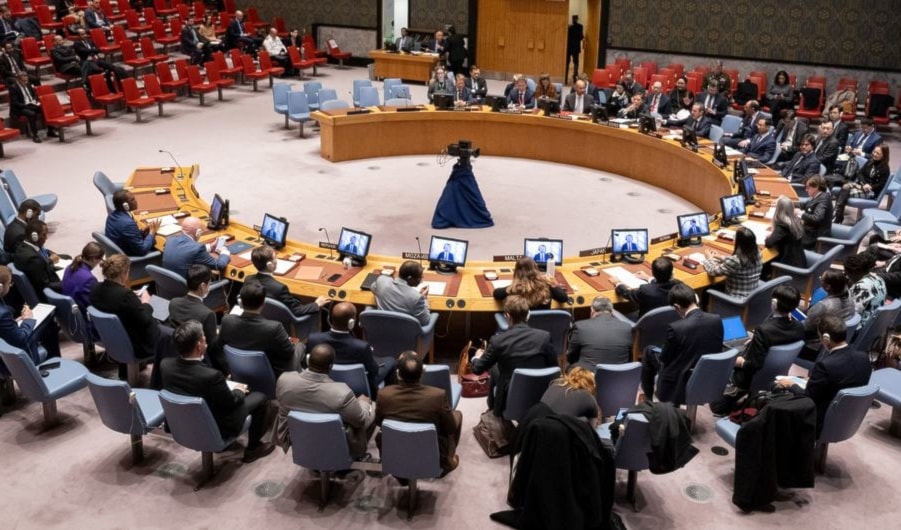US keep UNSC members ‘hostage’ by covering Israeli actions: Nebenzia
The UN Security Council discussed the Yemeni Armed Forces' targets in the Red Sea in its first public meeting on the matter.
-

Members of the Security-Council gather for a meeting on the maintenance of international peace and security in the Red Sea on Wednesday, January 3, 2024. (United Nations)
Russian Ambassador to the UN, Vasily Nebenzia, claimed that the United States is exerting control over the entire UN Security Council through their attempts to cover up Israeli crimes.
During the meeting on the Red Sea on Wednesday, Nebenzia told the Security Council members that “The US, covering for Israel’s actions, is holding other members of the Security Council hostage, preventing us from adopting a resolution...."
During the meeting, there was a call for de-escalation “to ensure the safety of our seafarers, freedom of navigation, and stability of supply chains," and a return to the regular flow of traffic to avoid the risk of "Yemen being dragged into a regional conflagration”
Earlier on Wednesday, according to the UN's maritime agency, 18 shipping firms are rerouting their boats across Africa to avoid the Red Sea due to an increase in assaults on Israeli-linked shipping vessels.
International Maritime Organization chief Arsenio Dominguez explained that "A significant number of companies, around 18 shipping companies, have already decided to reroute their vessels around South Africa to reduce the attacks on vessels."
Dominguez added that "(This) represents an additional 10 days to the journeys (and) negative impact on trade and on increasing freight rates."
The Yemeni Armed Forces (YAF) have struck an Israeli-linked ship in the Red Sea as part of a series of attacks in the critical waterway in support of Palestinians in Gaza.
On the other hand, according to a report by the Israeli Globes site, European nations are hesitant to join the US-led Prosperity Guardian coalition, in part because they do not want to be regarded as siding with "Israel" in Gaza.
Two weeks have passed since the Pentagon announced the launching of Operation Prosperity Guardian, which will include contributions from 20 nations. However, it continues to be haunted by the reluctant participation of its members and uncertainty behind the operation's objectives.
Many countries have agreed to send only a limited number of personnel. This poses a specific challenge, especially as Spain, Italy, and France have rejected the US request for their ships to be under US Navy command during their deployment in the operation.
As of yet, no nation with a significant Red Sea coastline has joined the alliance, even though rules for guaranteeing freedom of passage that include them already exist.

 3 Min Read
3 Min Read










